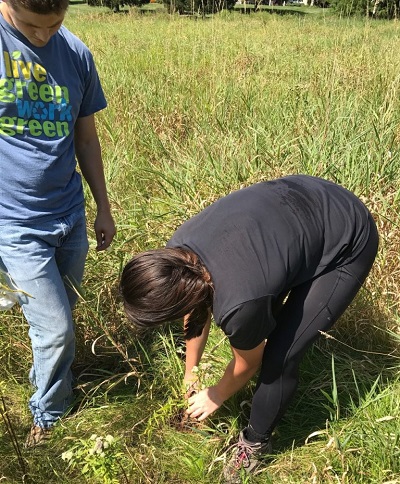 Princeton University (Princeton, New Jersey, USA) has announced it will fund a project that investigates whether natural-gas pipelines meant to resist microbiologically influenced corrosion (MIC) also stimulate biogeochemical processes that release toxic metals such as arsenic in groundwater.
Princeton University (Princeton, New Jersey, USA) has announced it will fund a project that investigates whether natural-gas pipelines meant to resist microbiologically influenced corrosion (MIC) also stimulate biogeochemical processes that release toxic metals such as arsenic in groundwater.
Entitled “The Environmental Impact of Fossil Fuel Infrastructure and Cathodic Shielding on Groundwater Quality,” the project is among 13 projects funded by the Princeton Environmental Institute (PEI) program as part of its Water and the Environment Grand Challenge program. This project will involve researchers working in Hunterdon County, New Jersey as they examine up to 100 private and public wells in the vicinity of major gas pipelines that use impressed current cathodic protection (ICCP).
Led by Tullis Onstott, a professor of geosciences at Princeton, undergraduate students in the PEI program will collect and analyze water and soil samples, testing for chemical signatures of arsenic migration as well as for heart, carbon dioxide, and methane leakages. From there, they will share their results with landowners and state agencies. The Princeton students will be working in collaboration with employees from the environmental services organization Raritan Headwaters (Bedminster, New Jersey, USA).
According to the project’s homepage, researchers will attempt to determine whether ICCP “stimulate[s] the biogeochemical processes that release arsenic from the surrounding aquifer, leading to groundwater contamination.” Soil samples from the well sites will be examined to recreate the pipeline-trench environment in order to understand the impact of ICCP. Based on this data, a 2D reaction-transport model will be produced to recreate the impact of natural-gas pipelines on arsenic release into groundwater.
The “The Environmental Impact of Fossil Fuel Infrastructure and Cathodic Shielding on Groundwater Quality” project is one of 13 PEI-funded projects that examine what the university calls “Grand Challenges” that address urgent and complex global environmental issues. Collectively, the 13 projects received a total of $1.01 million and will run from 2019 to 2021.
Source: Princeton University, www.princeton.edu/news.